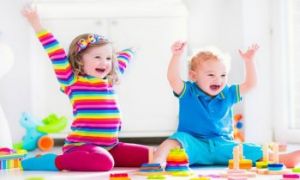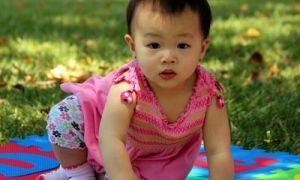

Simple songs about consent gently introduce children to concepts like body autonomy, boundary-setting, and respectful communication in ways that feel playful, affirming, and easy to remember. By pairing repetitive rhymes with hand motions, call-and-response, and relatable scenarios, these songs help children internalize messages such as “I can say no,” “I ask before I touch,” and “My voice matters.” Whether used in circle time, transition moments, or home routines, they offer educators and families an emotionally safe, joyful way to teach consent from the ground up.
Creating a safe and empowering environment for preschoolers begins with intentional, age-appropriate education around body autonomy, emotional literacy, and help-seeking skills. This article offers a collection of EYLF-aligned, trauma-informed Child Protection activities designed to foster safety, resilience, and voice in young learners.
In a heartwarming episode of Playschool titled “Island Life,” features Uncle Charles Passi, a proud Torres Strait Islander, joins the show and introduces viewers to the sit-down dance “Taba Naba,” a traditional Torres Strait Islander song that celebrates island life, the sea, and community connection. This is a great opportunity for educators to learn to dance to teach children.
In a world where children are constantly learning how to navigate relationships, boundaries, and emotions, Lulu Says Yes, Lulu Says No is a free children's story to introduce the concept of consent. Through the eyes of Lulu the Ladybug, children explore what it means to feel safe, respected, and empowered to make choices about their own bodies. This story is more than a tale—it's a teaching tool that supports social-emotional learning, body autonomy, and respectful communication in early childhood settings. The following article provides the free children's book Lulu Says Yes, Lulu Says No, Learning Objectives, Link to the EYLF, Discussion Prompts, Extension Ideas and more.
Incorporating STEAM displays within early learning environments offers children rich, open-ended opportunities for discovery, creativity, and problem-solving. From light tables with translucent materials to interactive coding corners and nature-based science trays, each provocation is designed to ignite curiosity and encourage independent exploration. The following provides a list of STEAM Displays and Learning Provocations For Children To Explore Independently.
Celebrating NAIDOC Week with babies aged 0–12 months is a beautiful opportunity to introduce them to the richness of Aboriginal and Torres Strait Islander cultures through sensory, visual, and rhythmic experiences. Here are some gentle, age-appropriate ideas tailored for your littlest learners.
Math resources and manipulatives are powerful tools that bring abstract concepts to life for young learners. When incorporated thoughtfully into play-based environments, math manipulatives not only support EYLF outcomes but also nurture confidence, curiosity, and a lifelong love of learning. The following lists 10 Math Resources and Manipulatives for Children.
Here’s a thoughtfully curated list of 20 autism-friendly activities that align beautifully with inclusive early childhood practices. These ideas support sensory regulation, communication, emotional development, and agency—while being playful and engaging for all children.
Helping toddlers and preschoolers build emotional vocabulary is like giving them a toolbox for life—they learn to name what they feel, which helps them express themselves, regulate emotions, and connect with others. Here are some engaging, developmentally appropriate strategies and games to teach emotional vocabulary.
A “feelings toolbox” is a collection of strategies, visuals, and resources that help children recognize, express, and regulate their emotions. The following article provides information on What Is A Feeling Toolbox?, Benefits Of A Feeling Toolbox, Feeling Toolbox Tools For Different Age Groups, Effectively Implementing A Feeling Toolbox, Examples For Using The Feelings Toolbox in Real-Life Scenarios and more.
 Toddlers have a greater understanding of the world around them by this stage. Their cognitive development (also known as intellectual development and thinking skills) continues… Read More
Toddlers have a greater understanding of the world around them by this stage. Their cognitive development (also known as intellectual development and thinking skills) continues… Read More
 Infants begin to develop trust when parents begin to fulfil their needs. Such as changing an infant's nappy when needed, feeding on request and holding… Read More
Infants begin to develop trust when parents begin to fulfil their needs. Such as changing an infant's nappy when needed, feeding on request and holding… Read More
 Beginning at birth the construction of thought processes, such as memory, problem solving, exploration of objects etc, is an important part of an infant’s cognitive… Read More
Beginning at birth the construction of thought processes, such as memory, problem solving, exploration of objects etc, is an important part of an infant’s cognitive… Read More
 Toddlers want to do more on their own and do not like it when you begin to establish limits on their behaviour. Tantrums can become… Read More
Toddlers want to do more on their own and do not like it when you begin to establish limits on their behaviour. Tantrums can become… Read More
 Your preschooler is now able to focus their attention more accurately and is less influenced by distractions. The intensity of questions increase as your child… Read More
Your preschooler is now able to focus their attention more accurately and is less influenced by distractions. The intensity of questions increase as your child… Read More
 John Dewey is often seen as the proponent of learning by doing – rather than learning by passively receiving. He believed that each child was active,… Read More
John Dewey is often seen as the proponent of learning by doing – rather than learning by passively receiving. He believed that each child was active,… Read More
 Toddler advance and gains new skills in Gross Motor Development milestones achieved throughout earlier years. Co-ordination and challenges that could not be performed before such… Read More
Toddler advance and gains new skills in Gross Motor Development milestones achieved throughout earlier years. Co-ordination and challenges that could not be performed before such… Read More
 Erik Erikson developed a psychosocial theory to understand how we each develop our identities through eight stages of psychosocial development from infancy to adulthood. The… Read More
Erik Erikson developed a psychosocial theory to understand how we each develop our identities through eight stages of psychosocial development from infancy to adulthood. The… Read More
 At this point preschoolers begin to interact effectively with others. Play becomes more innovative and organized and “boyfriend” or “girlfriend” begins to emerge. Preschoolers have… Read More
At this point preschoolers begin to interact effectively with others. Play becomes more innovative and organized and “boyfriend” or “girlfriend” begins to emerge. Preschoolers have… Read More
 From now, babies begin to identify and respond to their own feelings, understanding other's feelings & needs and interact positively with others. A baby's social and… Read More
From now, babies begin to identify and respond to their own feelings, understanding other's feelings & needs and interact positively with others. A baby's social and… Read More

Developmental milestones are things that, by a given age, most kids can accomplish. Milestones are...
See more...
Babies will begin to find new ways of moving themselves around the house and has...
See more...© 2009-2025 Aussie Childcare Network Pty Ltd. All Rights Reserved.

